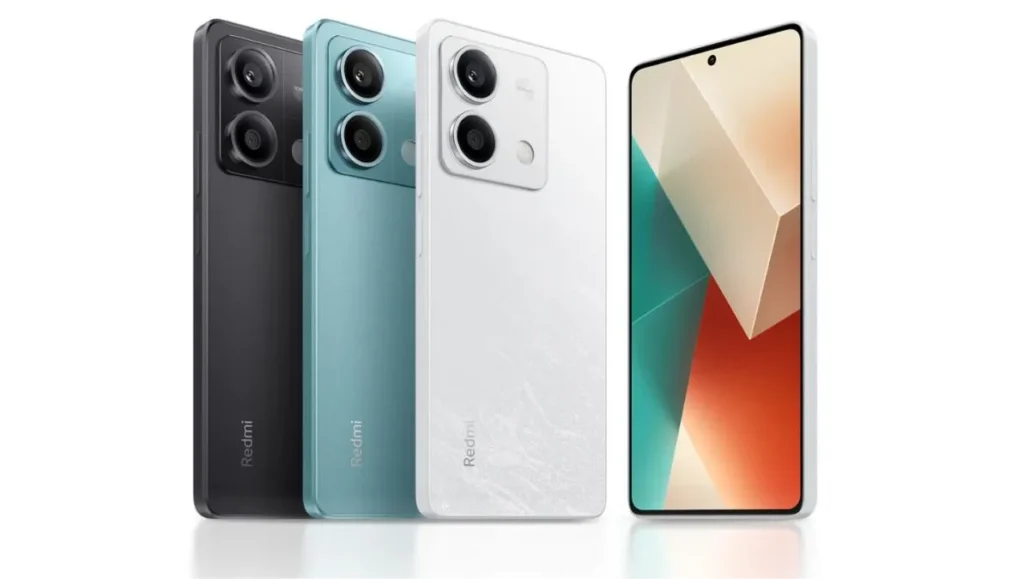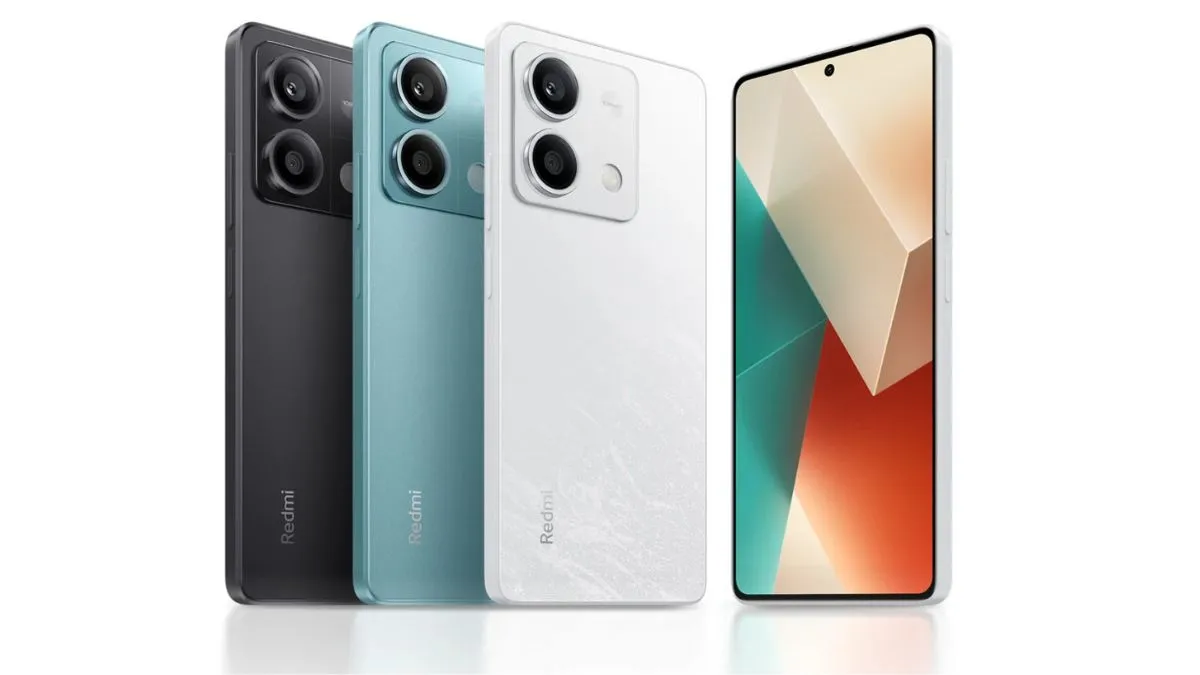
There’s absolutely no doubt in the fact that the Redmi Note series is extremely popular and loved worldwide and the new Redmi Note 13 Pro is priced at ₹26,000. Fortunately, we were able to get our hands on this smartphone and we have used it for a couple of days to see how it actually performs and does it makes sense to buy it in 2024.
If you’re a Redmi user and are willing to upgrade to this smartphone then you have landed at the right page my friend as today we’ll be providing you with a complete review of the Redmi Note 13 Pro so you can have a much clearer idea if this smartphone fits your needs or not and if you should purchase it in 2024. So let us quickly get started without wasting any moment.
Redmi Note 13 pro
Specifications
| Processor | Qualcomm Snapdragon 7s Gen 2 |
| RAM | 8GB |
| Display | 6.67-inches 1220 x 2712 pixels AMOLED |
| Camera | 200MP+8MP+2MP (Rear) 16MP (Front) |
| Storage | 128GB |
| Battery | 5100mAh |
| OS | Android 13 |
Redmi Note 13 Pro’s Display
Commencing with its display, the Redmi Note 13 Pro boasts a generous 6.67-inch 1.5K AMOLED display, flaunting a crisp pixel resolution of 2712 x 1220 and a cinematic 20:9 aspect ratio, delivering an impressive pixel density of approximately 446 PPI. Illuminated by a peak brightness of 1800 nits, the screen truly shines, particularly when indulging in HDR content. With full support for 100% DCI-P3 wide color gamut, expect nothing short of vivid and lifelike hues, marking a substantial enhancement in both resolution and luminosity compared to its predecessor.
What truly elevates the viewing experience is its 120Hz display refresh rate coupled with a 240Hz touch sampling rate, ensuring seamless navigation through the user interface and immersive gameplay. Sporting adaptive refresh rate technology, it seamlessly transitions between 30Hz, 60Hz, 90Hz, and 120Hz based on the displayed content, conserving power without compromising smoothness.
With HDR 10+ compatibility for platforms like YouTube and Netflix, alongside the rare inclusion of Dolby Vision support for Netflix, this device stands out in its price segment. Safeguarding this visual marvel is Corning Gorilla Glass Victus protection, ensuring durability against daily wear and tear.
Delving into customization options, the device offers various settings to tailor colors and contrast to personal preferences, complemented by a reading mode for reduced blue light emission. The inclusion of an always-on-display feature adds convenience and style to the user experience easily activated via display settings.
Redmi Note 13 Pro’s Build $ Design
The Redmi Note 13 Pro’s front camera is tucked into a small hole in the screen, so it doesn’t get in the way when you’re watching videos. There’s also a speaker above the screen that works as an extra speaker. The bottom edge of the screen is very thin, which is nice for a smartphone.
The buttons like volume and power are on the right side of the phone. The bottom has slots for two SIM cards, a speaker, a microphone, and a charging port. On top, there’s a headphone jack, a small hole for another microphone, and an infrared sensor. But you can’t add extra storage to the phone.
The phone is made of sturdy plastic and doesn’t have visible antenna lines. It has a special motor for vibrations that feel good when you touch the screen. Even though the screen is big, the phone is easy to hold because it’s not too wide. It’s also pretty thin and light, even with a big battery.
Must Read: OnePlus Nord CE4 Launch Date
Redmi Note 13 Pro’s Camera
The Redmi Note 13 Pro introduces a cutting-edge 200MP ISOCELL HP3 camera sensor, echoing the Redmi Note 13 Pro+. Alongside, it packs an 8MP ultra-wide camera, a 2MP macro camera, and a 16MP selfie shooter. The primary camera captures vibrant images with a pleasing orange hue, showcasing enhanced noise reduction and dynamic range under diverse lighting conditions. However, low-light scenarios may introduce inconsistency in color accuracy and saturation, with occasional overexposure.
The ultra-wide camera attempts to replicate the color balance of the primary camera, although sacrificing some detail. Nonetheless, it maintains a relatively balanced dynamic range. Portrait mode results may vary, occasionally leading to out-of-focus subjects. In optimal lighting, the front camera performs admirably, adept at capturing accurate skin tones. However, portrait shots may suffer from occasional inconsistencies in skin tone detection, requiring post-processing adjustments for optimal results.
On the video front, the Redmi Note 13 Pro supports 4K video recording at 30fps, while the front camera delivers 1080p video at 60fps. Despite the inclusion of the “upgraded” 200MP primary camera, enthusiasts might have hoped for 4K recording at 60fps, a feature absent in this iteration.
Redmi Note 13 Pro’s Battery Life
In terms of battery life, the device houses a robust 5100mAh battery, ensuring a full day of usage even under heavy demand. With moderate usage, it easily extends beyond a full day, courtesy of efficient optimization techniques. Additionally, with the inclusion of 67W fast charging support, users can replenish up to 50% of the battery in approximately 15 minutes, reaching a full charge in around 45 minutes when utilizing the bundled 67W charger.
If you have been keeping up with the tech industry news then you must be aware that the Realme 12 Pro is currently high in demand, and it features a good battery as well.
Redmi Note 13 Pro’s Performance
In benchmark tests, the Redmi Note 13 Pro impresses, hitting the performance sweet spot with an impressive AnTuTu overall score exceeding 500,000. Interestingly, despite sharing the same SoC, the POCO X6 outperformed it. It’s worth noting that these scores may see a slight bump on the 12GB RAM variant of the Note 13 Pro.
In day-to-day usage, the Redmi Note 13 Pro operates smoothly with minimal stutters, devoid of sudden crashes or heating concerns. Gaming performance is notably smooth, and can moderately handle games for a limited period. However, Xiaomi could enhance the overall software experience, particularly by addressing issues such as the confusing camera app UI and the inability to uninstall native Mi apps.
As of the review, the Redmi Note 13 Pro runs on Android 13-based MIUI, promising three years of Android updates. Additionally, the device comes with several pre-installed apps, which may clutter the software experience for some users.
Our Verdict
Guys this was our complete review of the Redmi Note 13 Pro and we have to say that we had a great time while testing this product and now we’re gonna answer the question. Should you buy the Redmi Note 13 Pro the answer is a YES! you can go for this device as it has a good design and performance as well.
As always if you have any doubt regarding the above information then do let us know in the comments below and we;ll get back to you in no time, till then stay safe.




